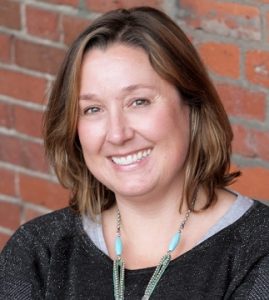Tabitha is a former staff member of PAN.
 Tabitha joined the PAN team in April as the Making It Work Research Project Coordinator. Tabitha has a PhD in Interdisciplinary Studies from UBC and has worked as a communications consultant and notable as a Senior Researcher with the Firelight Group a consulting group that works with Indigenous and local communities in Canada to provide high quality research, policy, planning, negotiation, and advisory services.
Tabitha joined the PAN team in April as the Making It Work Research Project Coordinator. Tabitha has a PhD in Interdisciplinary Studies from UBC and has worked as a communications consultant and notable as a Senior Researcher with the Firelight Group a consulting group that works with Indigenous and local communities in Canada to provide high quality research, policy, planning, negotiation, and advisory services.
What first piqued your interest in HIV research and evaluation?
I have two close friends who have been living with HIV for over 25 years and I’ve watched them navigate the health care system, the changes in their treatment, and the changes in society from early on in their diagnoses. I also have a distinct memory from when I was about 12 years old of a friend’s uncle who I learned was dying from AIDS-related complications. I remember how confusing it was for both of us. It was only later that I learned what his experiences in the healthcare system had been like in the mid-1980s. It’s those personal experiences that inspired my interest in the HIV/AIDS movement.
As an anthropologist, I’m interested in the individual human factor in research but I also recognize the need for quantitative data and numbers to help tell those individual stories. One of my closest held beliefs about research is that it needs to do actual work for people. I love learning for learning’s sake as much as anyone, but when it comes to research, particularly publicly funded research, I believe it needs to accomplish something for the good of human beings, whether it’s a small group or our larger society. Evaluation research is important because it shines a light on what is working and what isn’t, and then ideally goes a step further to how we can improve services, and as a result life overall, for those living with HIV/AIDS.
What role do you think HIV/AIDS research and evaluation plays in the “real world”?
I think it’s very important. While medical treatment and societal attitudes have made great forward progress, there is still a lot of work to be done. Stigma still exists and despite advances we’ve made we’re still seeing more vulnerable populations like Indigenous communities here in Canada with rising numbers of infections rather than seeing those numbers shrinking. Continuing to conduct rigorous research and evaluation is the only way that we will continue to fight this disease and the social and economic inequalities that often go hand in hand with it.
How do you engage the community in your work?
I’m an anthropologist, so people and community are at the heart of what I do in all my research. My research specialization is also around community and how we define it, form it, change it, and challenge it, so engaging community is especially near and dear to my heart. One of the things I find really special about PAN and our research is the dedication to directly involving our community of research into our projects. I feel really privileged to get to learn from and work with the peer evaluators we have on the Making It Work study. It’s also about directly engaging community members who are the ones making use of the services out there—asking them what is working and what isn’t for them, and why. They know what they need, or at least what is working for them—it is our job as researchers to help translate that into additional research priorities, recommendations for service priorities, and tools that help ensure community members are getting the kinds of help they need.
If you had unlimited funds, which area(s) of research or evaluation would you invest in?
Wow, this is a really tough question. There are so many areas of our world that could use unlimited research funds! As a qualitative researcher and ethnographer, I’m always looking at things holistically—no one piece of data stands alone as everything is connected to something else. So I would want to study one area but then look at all the connecting threads that move out from it. Food systems, and where and how people get culturally-appropriate, nutritious food is near and dear to my heart, so I’d start there but I envision a project that looks at not simply where someone is getting their food but all the ways in which socioeconomic factors, gender, geographic location, sexual orientation, race, culture, language, and more impact it. Since funds are unlimited, I’d look to research and community partners accustomed to working at a more macro level to investigate larger socioeconomic, political, and systemic impacts and how those contribute at an individual level. And then of course I’d want to take all of that and look at ways to improve upon the system at a micro and macro level.
If you were able to choose, what is the natural talent you’d like to be gifted with and why?
It’s not exactly a “natural” talent but I’ve always dreamed of a superpower that would give me instant fluency in any language I encounter so I could communicate directly with anyone anywhere in the world (or universe!).
